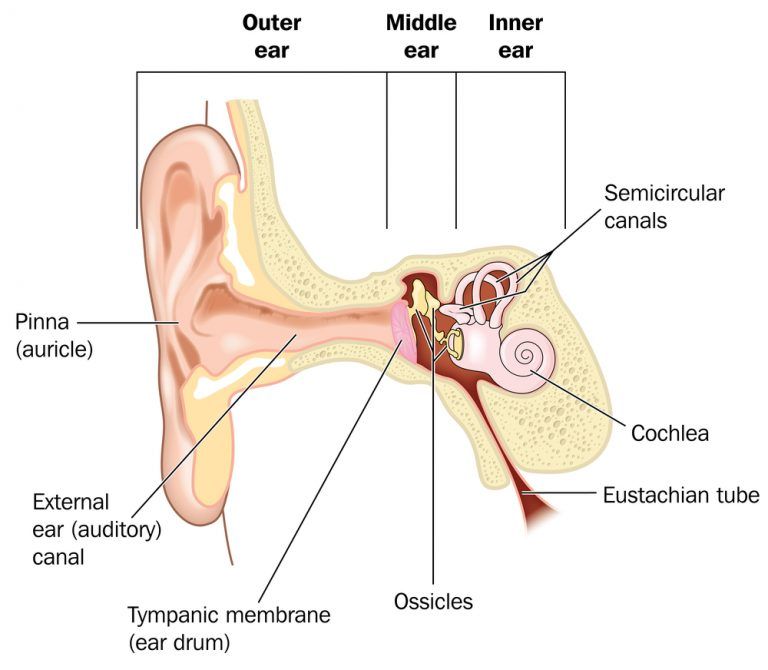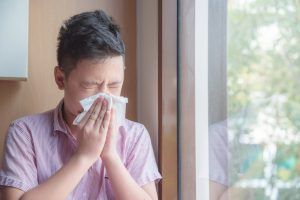Allergies and Vertigo (Dizziness): Why It Happens and What to Do
If you have allergies, you may be dealing with several symptoms that already disrupt your daily life. Sneezing, watery eyes, and a runny nose are not harmful, but they can be very uncomfortable. Even worse, you may also deal with vertigo. (Learn More) Allergies can cause your sinuses to become congested. The pressure on your sinus cavities can eventually lead to dizziness. (Learn More) Allergies occur when your body treats harmless substances as destructive. When your immune system responds to substances this way, they are called allergens. When facing allergies, you will produce a lot of mucus that eventually causes your sinuses to congest. This reaction occurs because when your body senses an allergen, it will release histamines that produce inflammation, thus creating mucus. (Learn More) Your reaction may be different depending on whether or not the allergen stems from a food-based or airborne source. (Learn More) This has an effect on your inner ear, which governs balance. There are many treatments available that can aid you, including medication and allergy shots. (Learn More) Even if you feel your dizziness may be directly connected to your allergy, discuss this health issue with your doctor, as it could be caused by something else. (Learn More)

What Are Eustachian Tubes?
There are tubes connecting your ear and throat called eustachian tubes. You have one on each side. When these tubes fill with mucus, it can have negative effects.
You may feel hard of hearing because you are congested.
You may feel dizzy because your inner ear is unable to compensate for the vertigo.
When the eustachian tubes are blocked, they lose their ability to help you feel a sense of balance. It makes sense that you start feeling as if the room is spinning if the only thing regulating your balance is unable to do its job properly. As a result, dizziness is caused when your inner ear is blocked with mucus. Still, Healthline reports that less than 10 percent of patients who visit the doctor because of dizziness do so because of an allergy.
What Are Histamines?
Common sources of airborne allergens are dust, pollen, pet dander, and mold. If these trigger allergies, then your body will release histamines to fight them. Eventually, this causes you to sneeze, cough, and have watery eyes. Histamines are inflammatory. Not treating symptoms quickly could cause them to last longer, making it easier to become dizzy as a result. Histamines work to help your body attack aggressors. These chemicals fight against pollen, dust, and other allergens seen as foreign. The chemicals are also released when you eat something you are allergic to. Food-borne allergies may also cause dizziness, but this goes away once the allergy is treated.

Are You Dizzy or Lightheaded?
Vertigo often results in feeling like the room is moving or spinning. Some people may feel lightheaded and are unable to distinguish between the two. Others may feel both at the same time. There are some basic differences between these two conditions.
When you feel lightheaded, you may suddenly feel that you need to sit down. When you do, the symptoms go away. In some cases, lightheadedness stems from low glucose levels. Eating something with probably help you cope with these symptoms. Drinking fluids may also improve your symptoms if your lightheadedness is the result of dehydration.
With dizziness, you can expect symptoms to last even if you eat something or lie down. Some patients decide to stay in bed for a few hours or days. Solutions for dizziness due to allergies are different depending on whether or not the source of the allergy is food or airborne materials.
What You Can Do About Dizziness
As mentioned by Mayo Clinic, dizziness can be caused by a variety of factors. If you visit a doctor because of vertigo, you may be asked a series of questions to rule out a serious problem, such as a recent injury to the head or a stroke.
Symptoms:
Your physician will want to know if there are any new developments in your health and what else you may be feeling in addition to dizziness.
Medication:
Be prepared to discuss any medications you are taking, including over-the-counter solutions for dizziness or allergies.
Finding a Solution
A CBS news report from July 2015 says that vertigo often heals by itself within a few days or weeks. If you have an allergy, there may already be ways to deal with the problem that will make your life easier.
If your dizziness is the result of a food allergy,
your physician may run tests to figure out what you are allergic to if you do not already know. You may even go on an elimination diet to rule out foods that are causing health issues. Your physician may also recommend dietary changes. Some patients are monitored for celiac disease as well.
If your dizziness is caused by an airborne allergy, you may be prescribed:
Known to relieve congestion, they prevent histamines from causing your body to fight off dander, pollen, and other things that confuse your immune system. They are also known for causing drowsiness. It is important not to mix these with antidepressants or muscle relaxants.
Additional medication.
These may include decongestants, oral sprays, nasal sprays, or corticoid steroids.
In the long term, you may receive an allergy shot. With a shot, you will be exposed to the allergen causing your symptoms in order to become immune to it. These shots start out with a very small dose of the allergen. As time passes, your dosage increases in hopes that these shots cause this reaction to stop.

Frequently Asked Questions
How are food and airborne allergens different?
Food and airborne allergies are different because allergens affect different systems in your body. Mayo Clinic says that an allergy can affect your skin, digestive tract, sinuses, and even nasal passages. Your reaction will be different depending on how an allergen has affected a particular system in your body. Food-based allergies are more likely to cause anaphylaxis. This is a severe reaction that can be fatal if not treated right away. Airborne allergens may cause you to feel symptoms that are similar to those associated with the common cold.
What are some common allergy symptoms?
The following are common symptoms of an allergic reaction to a food:
Hives
Swelling of the face, throat, or tongue
Anaphylactic shock
With airborne allergens, you may experience the following:
Runny nose
Red and watery eyes
Increased sneezing
An itchy nose or mouth
Why do allergies make me feel dizzy?
Some allergic reactions cause your body to release a lot of mucus. If you start having so much mucus that it blocks your inner ear drum, you may eventually feel pressure that causes dizziness. This is because your inner ears manage balance. Allergies also trigger the release of histamines — agents that fight a supposed aggressor in your immune system.
What are histamines?
Histamines are chemicals that your immune system uses to find intruders and deal with them. They trigger symptoms like sneezing, mucus, and a runny nose.
What are other common causes of dizziness?
In addition to allergies, you may experience dizziness or even vertigo because of untreated ear infections, benign paroxysmal positional vertigo (BPPV), Meniere’s disease, or vestibular neuritis. BPPV occurs when your ears accumulate calcium buildup, often because of a serious injury to the head or other serious trauma. If you have BPPV, you may experience dizzy spells that last 20 to 60 seconds. Meniere’s disease causes your brain to build up fluid stores. Along with dizziness or vertigo, you may lose some of your hearing and also experience ringing in the ears. Vestibular neuritis is the result of infections in your inner ear that cause inflammation, which makes it difficult for your body to maintain its sense of balance.
How do allergy shots work?

Per Mayo Clinic, allergy shots help your immune system become stronger by using treatment that can decrease or even stop your allergic reactions. Called immunotherapy, shots are administered over the course of three to five years. You doctor will inject you with a small dose of the thing that triggers your reaction and slowly increase your dosage. The goal is reduce your symptoms. Allergy shots are best for people who cannot avoid the thing that triggers their allergic reactions, and they can assist people who do not want to take too many medications. They may also be administered if a patient gets too many side effects from their current medication.
References
Dizziness as a Symptom of Food Allergies (January 2019) Verywell Health.
Dizziness (April 2019) Mayo Clinic.
Allergies and Dizziness: The Cause and the Treatment. (October 2018) Healthline.
What causes vertigo, and what should you do when you have it? (July 2015) CBS News.
Here’s One Allergy Symptom You May Not Expect This Spring: Vertigo (May 2018) Healthline.
Allergies: Symptoms and Causes. (January 2018) Mayo Clinic.
Allergy Shots. (September 2018) Mayo Clinic.

Related Articles

Allergies and Vertigo (Dizziness): Why It Happens and What to Do
If you have allergies, you may be dealing with several...

What’s the Most Effective Way to Treat Shingles? Can It Be Done Naturally?
If a rash has recently appeared on your body, you may...

Getting Over Performance Anxiety: What Works and What Doesn't?
Performance anxiety is a problem many people struggle...

Guide to Medication for Those Transitioning
People who are transgender have a different gender...
